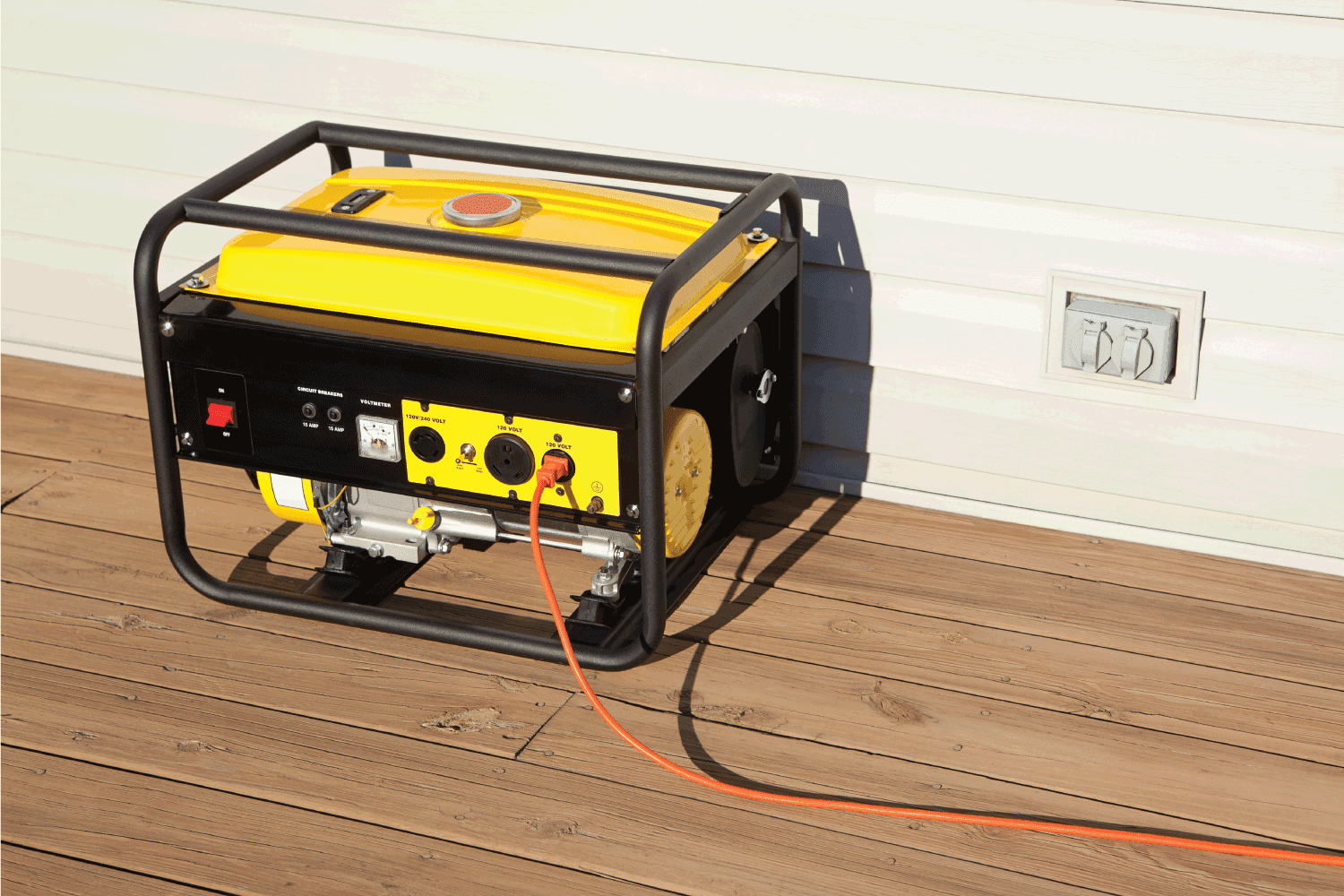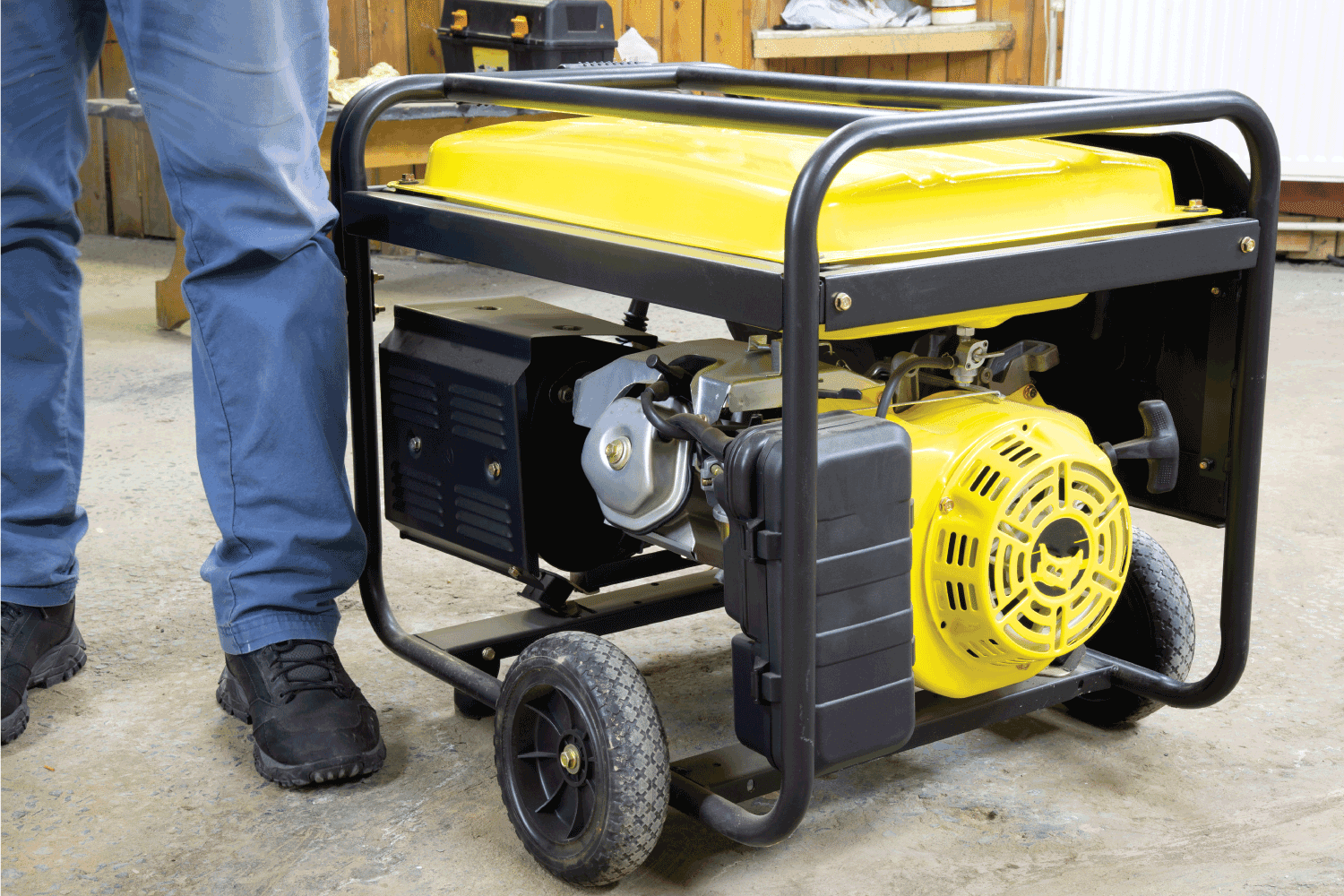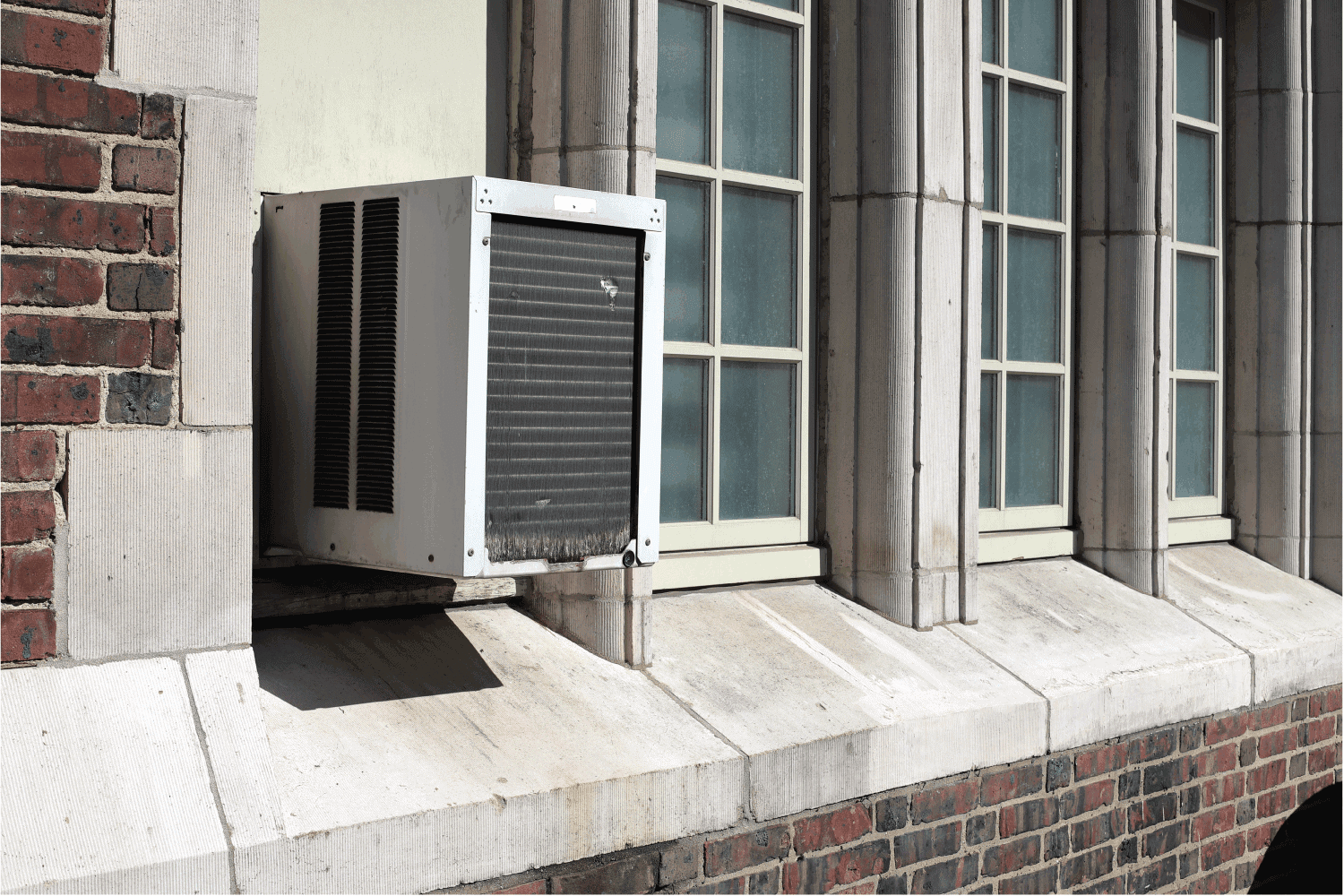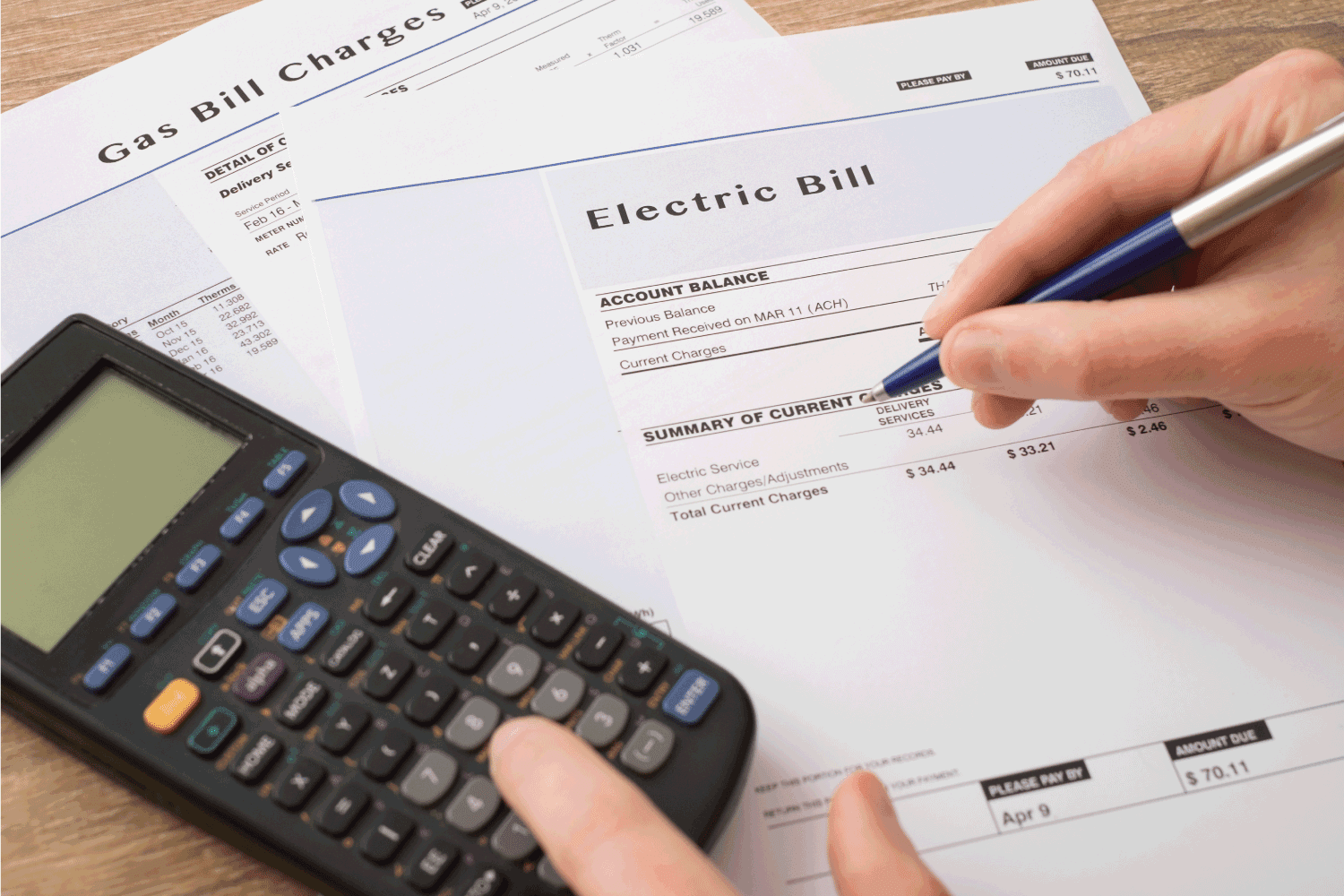Few things are as frustrating as an untimely power outage that takes the comfort of the air-conditioner along. Generators are life saviors, but you need the right size to accommodate your needs. If you have struggled to find the perfect generator for your AC unit, our answer might help you.
Generators with a 1200-5000W per the average 5000-10,000 BTU Window AC units can produce sufficient power to operate a window air conditioner. This value can deviate depending upon the additional starting watts required for the compressor to start. For instance, a 10,000 BTU Window AC Unit has a starting watt of 3000 and 1200 running watts. Only a generator with a maximum capacity of 4200 watts will be able to provide for it.
The factors affecting the needs of an AC unit are limitless, and so is the importance of meeting the requirements. To find out more about how you can choose the right generator, read ahead.

Can You Run An AC Unit On A Generator?
Yes, an AC unit can run on a generator. However, should you try connecting an AC unit to a generator that is not sufficiently powerful, your machines could suffer damage. Each AC unit has a different watt rating. To find out what works best for you, move to the part where we discuss the factors in play here.

Why Does Generator Size Matter?
Understand that if a generator too big can be a waste, one that is too small is equally wasteful. Going through the hassle of finding a balance is worth it because it will protect your assets in the long run. Buying a generator can become a wasted investment if you commit any one of the following mistakes:
Too small wattage
A generator with a too-small wattage rating will consume more power than the requirement and produce excessive heat. Overrunning of the system may result in overheating, fires, or worse, an explosion. Not only will this damage the generator but also all devices nearby. Even if it does satisfy the power requirement, you will have to face high maintenance costs and limited productivity due to the overload.
Too much wattage
A generator too big for your needs has a low-efficiency rate as it will not be working at its full potential. You will simply be paying extra, not only at the time of buying but also for the regular fuel cost.
Classifying Generators
Generators come in many different types. They differ based on loads, fuel consumption, number of phases, and much more. The market even has solar and battery-powered options. Their size depends on the amount of wattage rating they can handle. Wattage is the unit of electrical power.
Today, we have generators big enough to power whole factories with MegaWatt ratings and other smaller ones from 5000W to 50,000W working at the domestic level.
How Big Or Small?
Searching for a generator between various sizes and capacities becomes relatively simple with some math. Look for the watt consumption of your window AC unit on the buyer’s manual or through a motor load guide.
The average power your generator must hold is the sum of the running and starting wattages. Running watt refers to the energy required to keep a device in operation. While starting watt refers to the surge of power needed by the compressor to escape inertia and start.
The identification plate or the operator’s manual of the unit generally lists these measurements. Let us consider an example of a 12,000 BTU Window AC unit that, according to Kohler, has a running Wattage of 1700W and starting wattage of 5100. For effective working, you will now need a generator with an approximate 6800W. Additionally, to ensure no hiccups in performance, the AC unit has to be the only appliance running on the generator.
Factors Affecting Generator Size

Wattage Consumption
You know how to calculate the AC unit’s wattage consumption now, but what if that is not the only item to be powered? Here’s how you figure out the wattage necessary.
- Begin by determining what items you need to run in the case of a power outage, apart from the window AC.
- Evaluate the running watts and starting watts of your AC unit and all other items.
- If you do not find the watt rating in the back, use the following formula: VOLTS X AMPS = WATTS.
- Sum all the running watts and the highest starting watts.
- While you’re at it, think about the run-time of each device and cross out those you are unlikely to use. For instance, take a dishwasher. Is it necessary to wash dishes in a power outage? Can it not temporarily be substituted with a tap? Use this cross-question strategy and shorten the list.
The resulting measurement is the average wattage rating your generator must accommodate.
Types Of Load
Electrical loads come in two types, each crucial for selecting the generator size.
Reactive Loads
Work within systems of capacitors and resistors that generate an alternating current when the current flows through them. They are non-resistive and consume high power. Your window AC unit is a reactive load.
Resistive Loads
Transform the power being supplied to them directly into thermal energy. They are straightforward in their work, therefore, generally consume less power. If you want to run items like lamps, heaters, or filament bulbs along with your AC unit, you must consider this factor.
To understand how to drive different loads and their overall influence on the generator you are buying, the research paper by Texas instruments is a great source.
Ways Of Consumption
The size of a generator is also subject to the way you mean to consume its power. The choice between standby or prime power models is crucial here.
Prime Power
The only means of producing energy for an application. Prime-rated generators come to use when public-site power is not in use. They have a 70% average load value and a 10% overload capability.
Standby Power
Substitutes for the central power source in the case of a power outage. Standby-rated generators provide emergency power at an average 70% standby rating. However, they do not entertain overloads.
Consider a prime-rated generator with a rating of 200 KVA and a standby generator with that of 230 KVA. Both generators would work efficiently up to 70% of their rating. However, if power exceeds, unlike a standby generator, a prime-rated would handle an additional 20 KVA.
Voltage Dip
Short circuits, overheating, and starting of motors can cause a voltage dip in the system. Not all devices connected to your system carry the same tolerance for a voltage dip. Therefore, a generator needs to be large enough to abide by the maximum voltage dip tolerance. Greater insight into the working of voltage dips and their calculations may help you further.
Fuel
“What amount of fuel does my generator require” is not the only question you should be considering. “What kind of fuel does my generator require” is the bigger question.
The choice between all the fuel types affects your generator size. For instance, a gas-powered generator is cheaper than propane while a generator consuming petrol is always bigger due to derating. A detailed comparison of fuel choices for generators may help you out further.
How Does A Proper Size Generator Work In Your Favor?
Picking the right generator is going to favor you beyond just the comfort of the AC unit.
- The ratio between the power output and input will become balanced. Therefore, the generator will achieve a maximum efficiency rate.
- Not only will the lifespan of the generator increase, but also the lifespan of the device connected. In this case, your window AC unit.
- The chances for damage will reduce as you would have walked through the factors, making it highly reliable.
- No overstressing will result in a reduced need for constant maintenance.
- Your safety and the protection of your assets are assured, as the generator will not be facing any excessive burden.
Keeping the Generator In Check
After following each step and finding the ideal generator, you could wonder how to keep the device maintained? Below are a few tips to make all the precautions taken worthwhile.
- Supervise the wattage consumption. Make sure it relates to your previous findings, as human error is always possible.
- During periods of shutdown, check for the coolant level of the engine.
- Always empty the tank when the generator is not in use. Provide clean and appropriate fuel each time.
- Lubricate the system regularly. This process prevents erosion and environmental damages caused by ambients or humidity.
- Always record your generator’s working. This way, you can be aware of what state it is at any given point in time.
Do Not Forget The AC's Role

This discussion aimed to present the importance of generator sizing to you. When we talk about this concerning a window AC unit, you must first also have a good window AC at hand. No matter how efficiently the generator works, if the AC unit itself fails to perform, nothing can be achieved. Cross-check the following considerations with your AC unit to avoid this situation.
- The Window AC unit attached to your room must be big/small enough for the room size. Generally, a 20 BTU equals one square foot ruling is accepted.
- A Window AC Unit requires an individual branch circuit to avoid overburdening the main supply.
- Measure the requirements correctly for the type of AC you have.
- Always have a professional check-in with your house’s insulation capabilities.
- Is your AC unit way too old? Age deteriorates efficiency. So, such a unit will require a larger generator to work.
How Far Should The Generator Be From The AC?
The distance of the window AC unit from the generator does not matter if you establish a safe connection. Take considerable measures to locate it at least 15-20 feet away from the residence for safety purposes. Additionally, never operate a generator within confined spaces.
Do Window AC Units Use A Lot Of Electricity?
An average of 10,000 BTU window air conditioners consumes about 500-1400 watts of energy. This consumption is half of the 3500W usage of Central AC units. With that comparison, it is clear that window AC units do not consume a lot of electricity. But, they only consume as much as necessary.
Can You Run A Window AC Unit All Day?

Letting a Window AC unit run all day is safe. The parts are designed for continuous functioning and will not burn off or cease to operate. With a regularly performed maintenance check of the unit and clean air filters, you are good to go. However, be mindful that running a window AC unit costs twice the amount if run continuously.
Final Takeaway
All these steps later, a good-sized generator may seem scary to find. However, if you keep the anxiety at bay, carefully walk through our guidelines, and be determined to invest in a quality generator, your efforts will bear fruit. After all, nothing works better than a perfect size generator for an efficient window AC unit.
Before you go, have you wondered if you can use a window AC unit in places other than a window? To find out more, check out our post here.
Need to improve air circulation in one of your rooms? If you want to know more, check out our post here.
